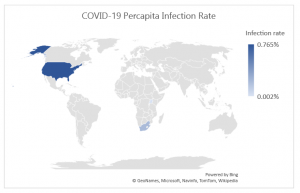Contents
Businesses often fail because founders and investors neglect to look before they leap, surging forward with plans without taking the time to realize that the base assumptions of the business plan are wrong. Most successful businesses are the result of more business knowledge than anything else.
In the Graham Hancock’s classic, Lords of Poverty: The Power, Prestige, and Corruption of the International Aid Business, Hancock vividly recounts how “experts” in charge of a World Bank project attempted in vain to set up a fish farming project in the remote rural areas of the Egyptian Sahara. Despite their best efforts and countless millions of US dollars in international grants, a year on, they were no nearer to getting the project off the ground.
Their only accomplishment had been the excessive environmental destruction caused by their futile attempts. None of these experts could figure out or fathom the reason for the project’s failure.
Meanwhile, a few kilometers away, local farmers were successfully carrying out a fish farming project at a fraction of the cost! It was soon discovered that the cause of failure throughout the World Bank-funded project had been its poor location over a porous rock base. Whenever water bowers were brought to fill the ponds, the water would seep through the rocks and after a few weeks or so, all the fish would die because of the lack of water. The natives had located their farming activity elsewhere because they were aware of the rock milieu; they had knowledge of what overpaid World Bank experts did not! While everything else was ideal for the experts, one inaccuracy resulted in catastrophic failure.
Know the basics
To be successful in any business venture, it is critical to have some expert knowledge of the trade or industry. One new to the industry cannot instantaneously expect to have expert knowledge. Investing costs money so before you undertake any venture you must be careful to ask the right questions and also get the best answers. Note that we say the right questions and best answers. In the business world, there are no universal answers, as you cannot always eliminate extraneous nor external factors.
Surely the foreign World Bank experts were all masters of ecology and without a doubt conceptually they understood the effects a porous rock base could have on fish farming, but they failed to consider whether such a limitation could affect their project by not asking those familiar with the landscape. Despite all the technical awareness the experts had, the right questions for them should have been centered on what they did not know, the condition of their chosen location in this remote rural area of the Egyptian Sahara.
The quest for knowledge within an industry should not stop at startup, as successful entrepreneurs are always re-investing into their business. Ergo re-investment requires further knowledge.
The more you know, the better
One should consistently be asking themselves, what are the processes involved in my industry, which provider offers the best technology, who supplies the best raw materials, why are we not maximizing revenues, and so on. If you simply invest without examining the feasibility of your venture, then experience is going to be very expensive! The World Bank experts failed to continuously ask themselves these type questions and only realized their flaw once they saw the successes of another, the local farmers, who had already answered these questions. The emphasis here is on constantly asking these questions throughout the business because you need updated or relevant knowledge. One should not wait for some sort of phenomenon to re-evaluate their business. There may be a tsunami; famine or occurrences you may not be able to predict, or they may be nothing at all. A successful business requires persistently seeking knowledge.
Knowledge helps you understand the business. It gives you a competitive edge and shortens the learning curve. Knowledge increases your chances of success and reduces the possibility of failure because you can assess and plan for most of the risks that are normally associated with a given business. For instance, if you are new to the industry of forestry, you may be unaware of the precise distance needed between trees, sometimes called fire-breaks or corridors, to lessen the impact of a forest fire. It is important to leave some areas unplanted otherwise a simple brush fire can easily wipe out a 10 acre, 10-year-old plantation.
This is standard knowledge in forestry so one cannot plead ignorance! Many business people in the region have not had formal training. Many of them have learned their trades by trial and error and this has been very costly. Simply learning all the different techniques in an industry is one way to circumvent having had formal training or having to experiment with trial and error. Despite the multitude of ways to lodge trees, a forester limited with a specific amount of and should stay away from the conventional method of full tree harvesting, the utilization of the entire tree including branches and tops. This process removes both nutrients and soil cover from the site causing harm to the long-term health of the area. This forester should be practicing new processes such as clear-cutting or tree length logging; methods which enhance silvicultural techniques for the healthy regeneration of new trees on site.
Getting the knowledge you need
As an investor, one needs to know where they are going to acquire knowledge. It can be gained from training in vocational institutions, workshops, and seminars or through trade magazines. One should not only stick to these predictable methods. Research the internet, other companies, both regionally and internationally as well as companies in other industries.
When it comes to areas of marketing, human resources, sales force management, feasibility planning, logistics and supply chain management; these are often areas that overlap between industries. If however, you are not able to access the above, then you better make friends with people who are already in the trade. Join an association, and learn from group experiences. Belonging to such an association is one way to consistently ask yourself questions and/or place one’s self in situations they have yet to deal with and gain knowledge that may prove advantageous in future endeavors. They say knowledge is expensive, but ignorance may be doubly so!
Remember, to be successful in any endeavor, it is critical to have some expert knowledge of the trade or industry. The quest for knowledge within an industry should not stop at startup, as successful entrepreneurs are always re-investing into their business. A successful business requires persistently seeking knowledge. Do not find yourself without knowledge.



